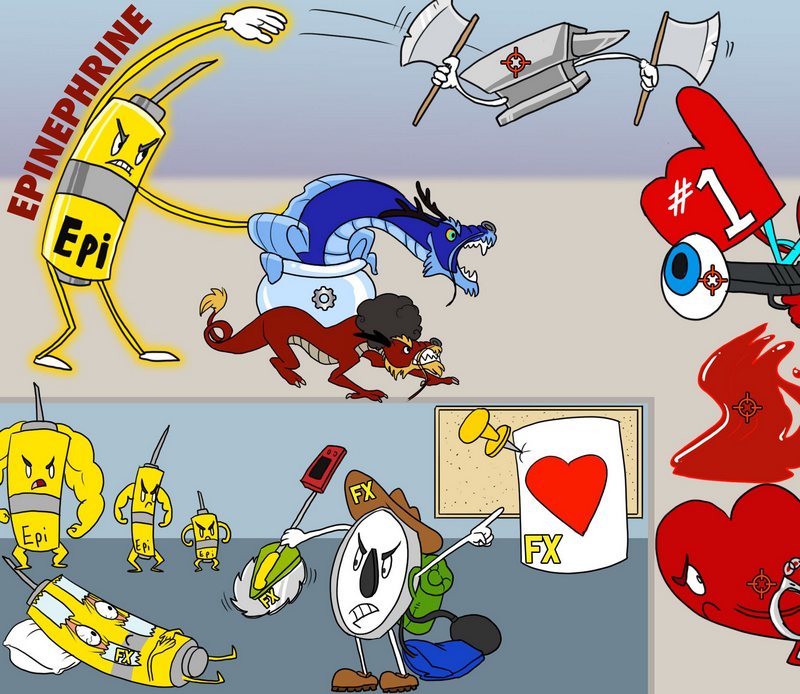The results obtained in this study indicate that terbutaline is an effective bronchodilator drug when given subcutaneously to children with acute exacerbations of bronchial asthma. The magnitude of clinical improvement was not significantly different from that obtained with epinephrine. Side effects were minimal with both drugs.
Evaluation of the direct effect of a bronchodilator drug on heart rate may be difficult, since improvement in the dynamics of the airway may be accompanied by a slowing of the heart rate. The significant increase in heart rate in the group receiving one injection of terbutaline is consistent with the findings from other laboratories reporting an increase in heart rate following administration of terbutaline to children with asthma. The increase in heart rate may be due to some direct or reflex effect on the heart. We cannot exclude the possibility of a baroreceptor response, in view of the small, but significant, fall in the diastolic blood pressure at 15 minutes. Such a reflex has been noted in normal adult men after administration of terbutaline; however, the persistence of the increased heart rate at 30 minutes (when there is no longer a significant fall in diastolic blood pressure) and the failure to detect a significant correlation between the change in heart rate and the change in diastolic blood pressure suggest that there is a small, direct, and positive chronotropic effect.

There was little or no change in heart rate in the groups receiving two injections of terbutaline or receiving one or two injections of epinephrine, even though there was a significant fall in diastolic blood pressure. Since the patients in these three groups tended to have a higher initial heart rate, the effect of therapy with terbutaline or epinephrine on the heart may have been masked by a ceiling effect on heart rate from endogenous catecholamines in these patients. Additional support for this hypothesis is provided by the observation that when administration of terbutaline increased the heart rate in asthmatic children in other studies, the initial heart rate was only about 100 beats per minute, or even lower than the initial heart rate in the group receiving one injection of terbutaline.
Other studies in adults and children with less severe forms of asthma have shown terbutaline to be an effective bronchodilator drug when injected sub-cutaneously. This study has demonstrated that at equivalent doses, terbutaline is as effective as epinephrine for acute asthmatic attacks in children. Finally, because terbutaline can be administered by mouth and by aerosol, it offers promise of being very useful in the treatment of both acute and chronic forms of asthma.
The earlier published articles on this theme may be witnessed on:
Terbutaline in the Treatment of Acute Asthma in Childhood
Results of Terbutaline in the Treatment of Acute Asthma in Childhood

